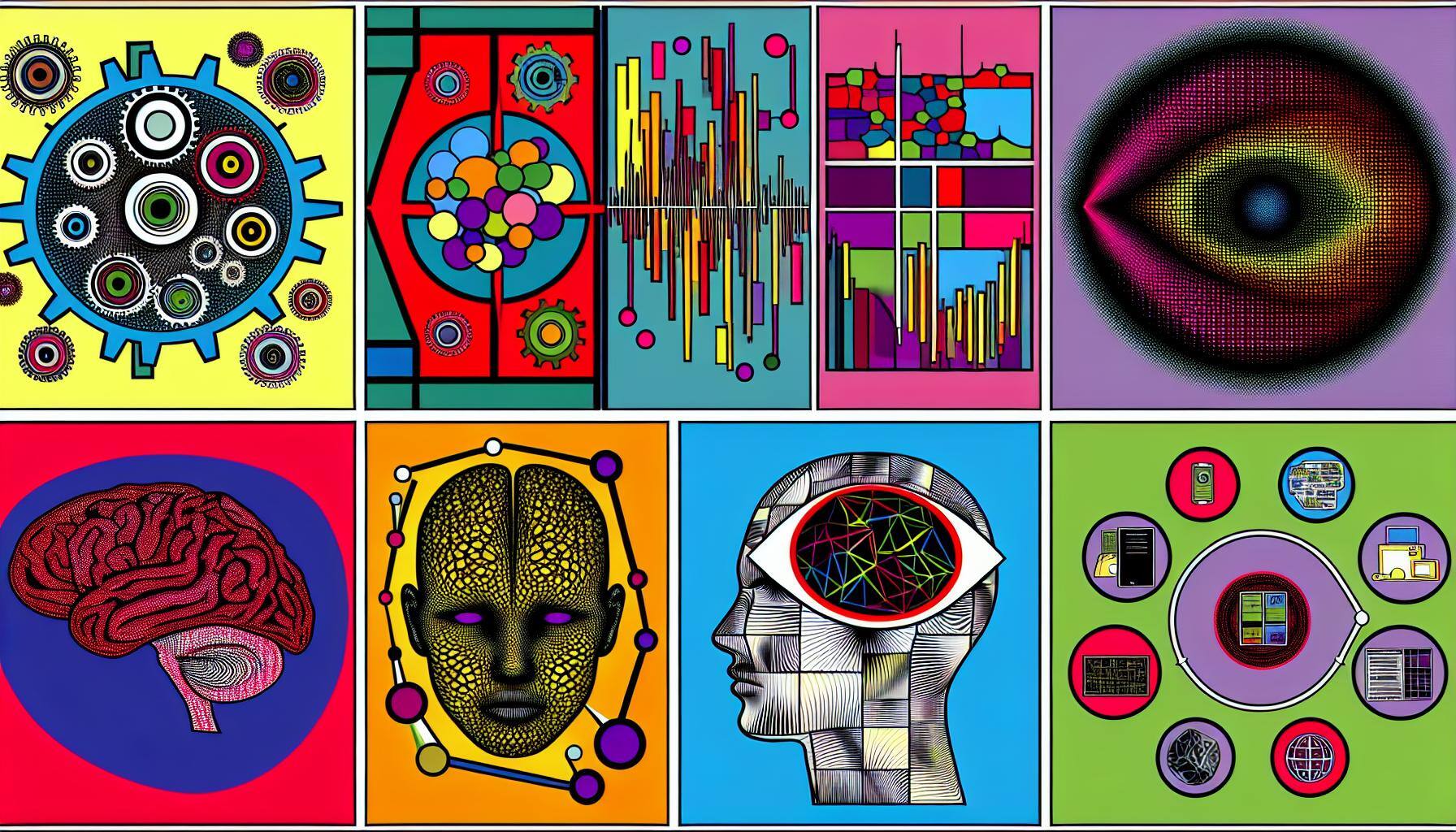Artificial Intelligence (AI) has rapidly become a buzzword in business, promising transformative changes across various sectors. Understanding the different types of AI is crucial for business professionals curious about its benefits. This knowledge not only demystifies the technology but also helps make informed decisions about its implementation.
The Growing Importance of AI in Business
Imagine a world where your business processes are streamlined, customer interactions are personalised, and decision-making is data-driven. This isn’t a distant future—this is the power of AI today. From automating mundane tasks to providing deep insights, AI revolutionises how businesses operate. But to harness its full potential, it’s essential to understand the different types of AI and how they can be applied to your business.
Exploring the Types of AI
AI can be broadly categorised based on its capabilities and functionalities. Let’s explore the main types of AI and how each can benefit your business.
1. Reactive Machines
Reactive machines are the most basic type of AI. They are designed to perform specific tasks without any learning or memory capabilities. They react to specific inputs with pre-determined outputs.
Example: Deep Blue, IBM’s chess-playing computer, which defeated world champion Garry Kasparov, is a classic example. It could identify the pieces on a chessboard and make moves based on algorithms.
Business Application: Reactive machines can be used in business scenarios requiring consistent performance for repetitive tasks, such as automated customer service responses or basic data entry tasks.
2. Limited Memory
Limited memory AI can learn from historical data to make decisions. Unlike reactive machines, these systems can improve over time as they process more data.
Example: Self-driving cars use limited memory AI to observe the speed and direction of other cars, traffic signals, and road conditions to navigate safely.
Business Application: This type of AI is useful for predictive analytics in business, such as forecasting sales trends, customer behaviour analysis, and inventory management.
3. Theory of Mind
Theory of mind AI is still experimental and aims to understand human emotions, beliefs, and intentions. This type of AI would be capable of social interactions similar to humans.
Example: Advanced AI assistants that can comprehend and respond to human emotions nuancedly fall into this category.
Business Application: In the future, theory of mind AI could revolutionise customer service by providing empathetic and emotionally intelligent interactions that enhance customer satisfaction.
4. Self-Aware AI
Self-aware AI represents the pinnacle of AI development. These systems possess self-awareness and consciousness, enabling them to understand and process their emotions and those of others.
Example: Self-aware AI is purely theoretical and has not been realised in practice. It represents an AI system with independent decisions and subjective experiences.
Business Application: If achieved, self-aware AI could lead to unprecedented levels of automation and innovation in business, with machines capable of complex decision-making and strategic planning.
5. Narrow AI (Weak AI)
Narrow AI is designed to perform a single task or a narrow range of tasks. It operates within a pre-defined context and cannot perform beyond its limitations.
Example: Virtual assistants like Siri and Alexa, recommendation algorithms on Netflix, and customer service chatbots are all examples of narrow AI.
Business Application: Narrow AI is widely used today for automated customer support, personalised marketing, and fraud detection tasks. Its ability to efficiently perform specific tasks can greatly enhance productivity and customer experience.
6. General AI (Strong AI)
General AI, or strong AI, refers to machines that can understand, learn, and apply knowledge across various tasks at a level equivalent to human intelligence.
Example: A true general AI could perform any intellectual task that a human can. General AI remains theoretical and is a major goal of AI research.
Business Application: The development of general AI would revolutionise industries by providing machines that can adapt to new tasks and environments without specific programming, leading to more dynamic and flexible business operations.
7. Artificial Superintelligence (ASI)
Artificial superintelligence surpasses human intelligence and capabilities. This type of AI would outperform humans in all fields, including scientific creativity, general wisdom, and social skills.
Example: ASI remains speculative, but it represents the ultimate potential of AI, where machines could solve complex problems beyond human capacity.
Business Application: ASI could drive unparalleled innovation and solve some of the world’s most challenging problems. However, it also raises significant ethical and safety concerns that need careful consideration.
The Benefits of Different Types of AI in Business
Understanding the different types of AI opens up numerous possibilities for integrating AI into your business strategy. Here are some key benefits:
1. Enhanced Efficiency
By automating routine tasks, AI can free up valuable time for employees to focus on more strategic activities. This leads to improved productivity and operational efficiency.
2. Better Decision-Making
AI-powered analytics provide deep insights into market trends, customer preferences, and operational performance. This data-driven approach helps businesses make informed and strategic decisions.
3. Personalised Customer Experience
AI can analyse customer data to deliver personalised experiences, improving customer satisfaction and loyalty. From tailored product recommendations to personalised marketing campaigns, the potential is vast.
4. Cost Savings
Automating processes with AI can significantly reduce operational costs. For example, chatbots can handle many customer inquiries without extensive human resources.
5. Competitive Advantage
Early adoption of AI technologies can provide a competitive edge by enabling businesses to innovate and respond quickly to market changes. Companies that leverage AI effectively are better positioned to lead their industries.
Implementing AI in Your Business
Now that you understand the different types of AI and their benefits, it’s time to consider how to implement AI in your business. Here are some steps to get started:
1. Identify Your Business Needs
Determine the specific areas where AI can add value to your business. This could be improving customer service, enhancing marketing strategies, or optimising operations.
2. Choose the Right AI Tools
Select AI tools that align with your business objectives. If you need advanced customer interactions, consider conversational AI platforms like Kore.ai. Tools like IBM Watson or Google Cloud AI might be suitable for data analysis.
3. Develop a Pilot Project
Start with a pilot project to test the feasibility and impact of AI on a small scale. This helps in understanding the practical challenges and benefits before a full-scale implementation.
4. Train Your Team
Ensure your team has the necessary skills to work with AI technologies. Provide training sessions and resources to help them understand and utilise AI effectively.
5. Monitor and Evaluate
Continuously monitor the performance of AI tools and evaluate their impact on your business. Use the insights gained to make informed decisions and improvements.
Conclusion
The different types of AI offer many opportunities for businesses to innovate and grow. The potential benefits are immense, from enhancing efficiency and decision-making to personalising customer experiences. By understanding and leveraging the right types of AI, your business can stay ahead in the competitive market landscape.
Integrating AI into business strategies will become increasingly crucial as we move forward. Embrace the power of AI today and unlock the potential for a smarter, more efficient, and more innovative business future.
Digital Transformation AI Artificial Intelligence Kore AI Conversational AI AI Chatbot


